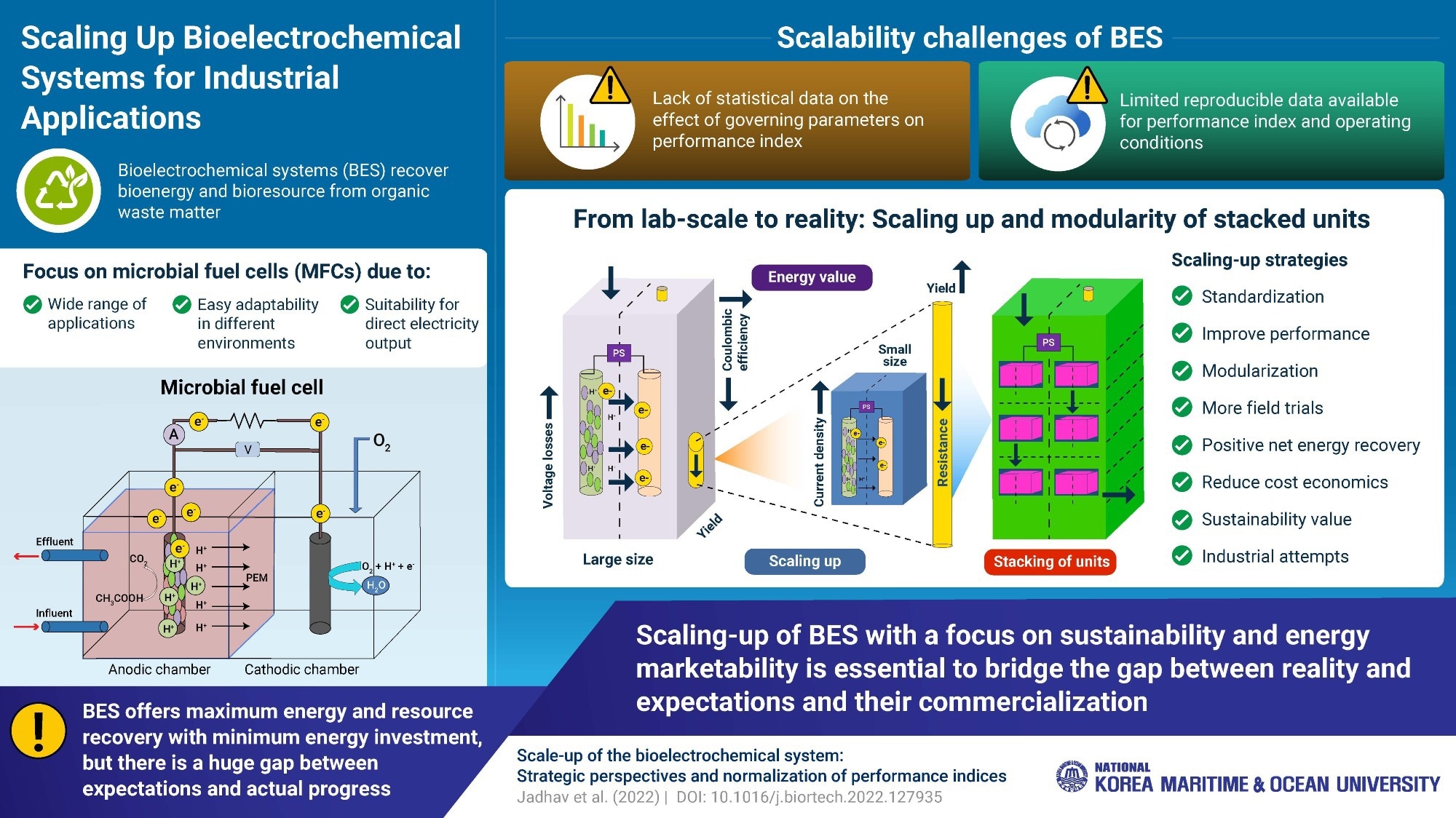With rising concerns about energy and water management, microbial electrochemical technologies (METs), such as microbial fuel cells, have emerged as promising solutions. However, actual progress in these technologies have not lived up to the expectations so far. Now, in a new study, researchers from Korea, India, UAE, and Turkey have highlighted strategies that can help with the up-scaling of METs, eventually leading to their commercialization and widespread use.

Image Credit: National Korea Maritime & Ocean University
Microbial electrochemical technologies (METs) have recently emerged as a tool for recovering bioenergy and bio-resource from organic waste matter. This can help with long-term energy generation during wastewater treatment. METs, commonly expressed as bioelectrochemical systems (BES), offer maximum resource and energy recovery with minimum energy investment. However, there is currently a mismatch between expectations and actual progress in BES technologies due to a lack of reproducible and statistical data, which hinders their scalability and, in turn, commercialization.
Set against this backdrop, an international team of researchers, led by Dr. Dipak Jadhav and Prof. Kyu-Jung Chae from Korea Maritime and Ocean University (KMOU), has now published a study in Bioresource Technology Journal addressing this issue. The study was made available online on September 10, 2022, and was published in Volume 363 of the journal in November 1, 2022.
“For industrial applications, the scaling up of bioelectrochemical system is an important concern before moving ahead with their commercialization. Our study provides strategies that can be adopted to achieve this end,” explains Dr. Jadhav. “Such a technology will be a value addition for the recovery of resources including biohydrogen, electricity, industrial chemicals.” On this front, a review of recent research revealed the need for a systematic rethinking of net energy recovery, resource yield, and current production, with a focus on sustainability and energy marketability, for the scaling-up of METs.
The most important need identified was the standardization of performance indices, which helps assess the performance of various BES. Additionally, the team proposed a single frame for normalization methods to allow for precise data comparison to existing treatments. These technological implementations, the study suggests, will effectively address the existing concerns with BES. This, in turn, would help attract the business market, stakeholders, and investors, paving the way for their commercialization. “We expect that, based on our highlighted strategies for up-scaling BES technologies, we can harness their potential for resource recovery by converting the chemical energy of wastewater into valuable resources during on-site treatment at an efficiency that is comparable with conventional methods,” concludes an optimistic Prof. Kyu-Jung Chae.
And we hope his visions are not far from being realized!
Source: http://www.kmou.ac.kr/english/main.do